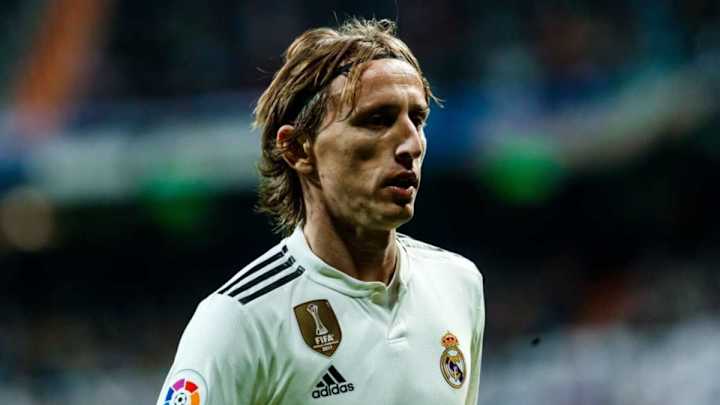Why Real Madrid & Croatia Midfielder Luka Modric Deserved to Win the 2018 Ballon d'Or

If France Football has any integrity, and wishes to continue its longstanding tradition of reputability and merit, then it had to give Luka Modric the Ballon d'Or at Monday night's ceremony in Paris.
It's as simple as that. The Croat had already picked up FIFA's precursory 'The Best' award and was the prevailing favourite for the award. But, as Francis Ford Coppola found out at the 1973 Academy Awards, or Orson Welles in 1941, or Wesley Sneijder in 2010, this doesn't guarantee anything.
But, just as those three varying figures of sporting and film history had hands in historic feats, Modric has been this year's outstanding figure. Unsurprisingly, it was that final name that probably rang the truest, yet also provided the most cause for concern.
That's because Sneijder's 2010 was almost a carbon copy of Modric's 2018. Both led their team to Champions League glory in May, somewhat against the odds (though they were a bit less stacked for Luka, it must be said), before hauling their countries to an unlikely World Cup final, and so nearly tasting glory.
Fortunately, Luka did have one edge over his Dutch counterpart - he was rightly recognised as the best player of the tournament in Russia, while Wesley was inexplicably cast aside for the admirable, but incomparable exploits of Diego Forlan. He'd scored the same amount of goals as Forlan from midfield, and gone one stage further, FFS.
Perhaps what went against the Oranje and Inter player on that occasion was his age - he was only 26 at the time. Indeed, it's remarkable, considering Sneijder's dip in the proceeding years, to consider that the Real Madrid man is only one year younger than him now, at 33.
Thankfully, this great maturing has lend him more weight, as it should. He was utterly phenomenal throughout this year, nurturing a disjointed Los Blancos team to European glory once more with his otherworldly passing and majestic majesty on the ball.
Yet he's far from being simply a pass-master. As Cesc Fabregas seems to have found out the hard way, in today's game it is getting harder and harder to exist as such. No, Modric is an industrious, no-nonsense, combative midfielder when he wants to be, and his energy levels at his age seem second to none.
Think of those three consecutive extra time periods in the knockout round of the World Cup, and the way in which the midfielder always retained his composure and tenacity despite the inevitable fatigue.
He's certainly fitter than Cristiano Ronaldo, who despite an unrivalled physique and athleticism, doesn't get around nearly as much as the Croat, and therefore can only produce big moments, rather than sustained excellence across 90 minutes.
And that, ultimately, is what the Ballon d'Or should be about, sustained excellence on a personal level, that clearly translated to success and superiority for a team. Of course, Lionel Messi is a better player than Luka Modric - he always will be, even when he's 86. But he hasn't had a better year than him. Few people have - and that's why he's a deserving winner.
Sure, Raphael Varane was great, and went one step further than Modric by winning in Russia, but he also had Samuel Umtiti alongside him, plus N'Golo Kante, Blaise Matuidi and a Jose Mourinho-free Paul Pogba ahead of him, playing in a system designed by Monsieur Water Carrier himself, Didier Deschamps.
👏👏👏 The 2018 Ballon d'Or is Luka Modric (@lukamodric10)! #ballondor pic.twitter.com/2W0JGJpisn
— Ballon d'Or (@ballondor) December 3, 2018
Yes, Modric had Rakitic next to him, but he had Dejan Lovren behind him, and some bloke with a ridiculous ponytail alongside him. In light of the recent circumstances in the French capital, as well as Buenos Aires, we definitely shouldn't have rioted if Modric didn't win - you shouldn't care that much.
